
Study in Ireland
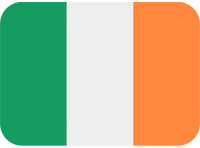
Overview
Study in Ireland
Ireland has become an increasingly popular destination for international students, offering a combination of world-class education, a rich cultural heritage, and a welcoming environment. Whether you’re seeking a highly ranked academic programme, career opportunities, or an adventure in one of Europe’s most vibrant countries, Ireland offers an ideal setting for personal and academic growth. Here’s why you should consider studying in Ireland:
Begin Your Journey
Schedule a Free Consultation
Benefits
Benefits of Studying in Ireland
- High-Quality Education
- Ireland boasts a robust education system with universities and institutions regularly ranked among the top in the world. The Irish government places great emphasis on education, investing in research and development, making Ireland a hub for innovation and learning. Degrees awarded by Irish institutions are internationally recognised, making it an attractive option for those planning to work or study globally.
- Cultural Experience
Ireland is famous for its rich history, lively arts scene, and friendly, welcoming people. The country’s mix of urban and rural life offers something for everyone—from the bustling streets of Dublin to the scenic countryside, Ireland provides a unique blend of modernity and tradition.
- Work Opportunities
Ireland is home to several global tech giants, including Google, Apple, and Facebook, offering ample opportunities for internships, part-time work during studies, and potential post-graduation employment. The Irish government also provides graduates with a one-year work permit, which can be extended to two years for those in STEM fields.
- English-Speaking Country
As one of the few English-speaking countries in Europe, Ireland provides an excellent opportunity for students to improve their English skills while immersing themselves in a rich cultural experience.
Top Courses
Popular Courses in Ireland
Ireland offers a wide range of courses across various disciplines. Some of the most sought-after courses for international students include:
- Engineering and Technology
With many global tech companies based in Ireland, courses in Software Engineering, Computer Science, and Data Science are extremely popular. Ireland’s growing reputation as a tech hub makes it an ideal destination for aspiring engineers and IT professionals.
- Business and Management
Ireland is home to top-ranked business schools offering MBA programmes, Marketing, Finance, and Human Resource Management. With a thriving economy, Ireland offers many opportunities for students to network and launch their careers.
- Life Sciences and Medicine
Ireland is renowned for its contributions to the medical and pharmaceutical industries. Courses in Pharmacy, Biomedical Science, and Medicine are widely available and provide strong industry connections.
- Arts and Humanities
Known for its rich cultural history, Ireland offers a wide variety of programmes in History, Philosophy, Literature, and Sociology. Students can explore Ireland’s vibrant arts scene while studying in world-class institutions.
- Tourism and Hospitality
Ireland’s booming tourism industry makes it an ideal place to study Hospitality Management, Tourism, and related fields. Students can benefit from hands-on experience and internships in top hotels, restaurants, and tourism companies.
Top Institutions
Top Institutions in Ireland
Some of the best institutions in Ireland that attract international students include:
- Trinity College Dublin
Ireland’s oldest and most prestigious university, consistently ranked in the world’s top 100 universities, Trinity College offers a wide range of undergraduate and postgraduate courses across all disciplines.
- University College Dublin (UCD)
UCD is one of Ireland’s largest universities, with a strong reputation in research and teaching, particularly in the fields of business, engineering, and the sciences.
- University College Cork (UCC)
UCC is known for its excellent research output and wide variety of undergraduate and postgraduate courses. It’s particularly well-regarded for its programmes in law, business, and the humanities.
- Dublin City University (DCU)
With a strong focus on industry partnerships and employability, DCU is a great option for students interested in courses related to technology, business, and the arts.
- National University of Ireland Galway (NUIG)
NUIG is a leading research university offering a wide range of courses, including strong programmes in engineering, science, and humanities.
- Dublin Business School (DBS)
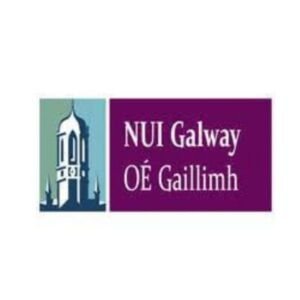
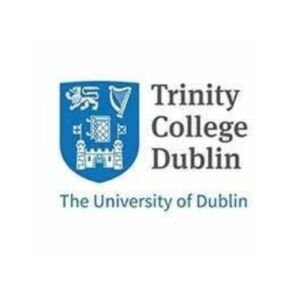
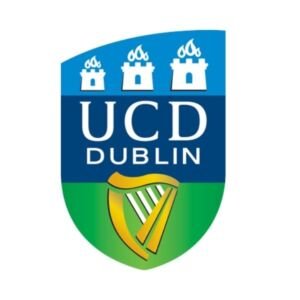
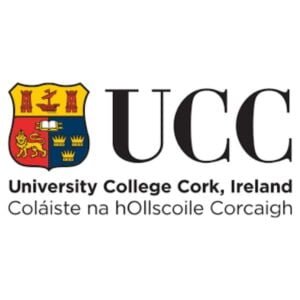
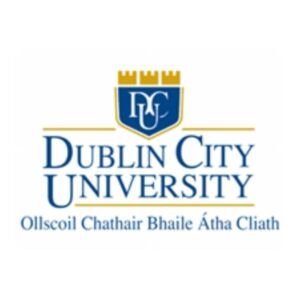
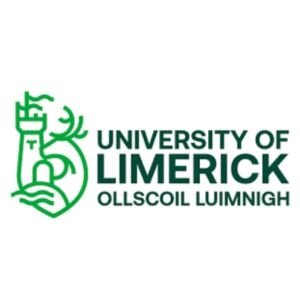
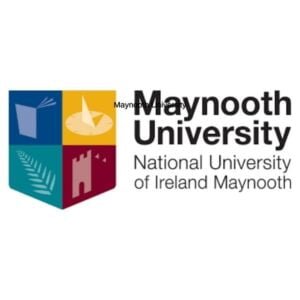
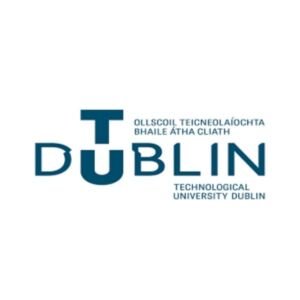
Admission Process
The admission process in Ireland is straightforward, but requirements may vary depending on the course and institution. Here’s a general outline of what you need to do:
- Research Programmes:
Start by researching the programme you wish to study and ensure that you meet the entry requirements for your chosen institution.
- Apply to Universities:
You can apply directly to the institution or via the Central Applications Office (CAO) for undergraduate courses. For postgraduate courses, applications are typically made directly to the university.
- Documents Required for Application:
- Academic transcripts and certificates (secondary school for undergraduates, bachelor’s degree for postgraduates)
- Proof of English proficiency (IELTS, TOEFL, or other recognised tests)
- Curriculum Vitae (CV) or resume (for postgraduate students)
- Personal statement or Statement of Purpose (SOP)
- Two to three reference letters (academic or professional)
- Passport copy and photograph
- Some courses may also require a portfolio, particularly for arts, design, or architecture programmes.
Visa Process
Visa Process and Requirements for International Students
To study in Ireland, international students require a Student Visa. Below is a breakdown of the key steps and requirements:
Step 1: Receive an Offer Letter
You must have an official offer of admission from a recognised Irish educational institution. Only after receiving this offer can you proceed with your visa application.
Step 2: Apply for a Student Visa
International students must apply for a C Study Visa (for courses lasting less than 3 months) or D Study Visa (for courses lasting more than 3 months) through the Irish Naturalisation and Immigration Service (INIS).
- Online Visa Application:
Complete the online visa application form on the INIS website, which will require details about your personal information, academic background, course details, and financial standing.
- Visa Application Fee:
The visa application fee is typically €60 for a short stay (less than 3 months) and €100 for long-stay visas (more than 3 months). The fee is non-refundable, even if your visa application is denied.
Step 3: Submit Required Documents
Along with the completed online application form, you will need to provide the following documents:
- Valid Passport:
Your passport must be valid for the duration of your intended stay in Ireland.
- Offer Letter from a Recognised Irish Institution:
A letter of acceptance from an Irish university or college, confirming your enrolment.
- Proof of Financial Support:
You need to show that you have sufficient funds to cover tuition fees, living expenses, and return travel. This leads us to one of the most important aspects of the visa application.
- Proof of English Proficiency:
IELTS, TOEFL, or another recognised English test.
- Proof of Accommodation:
You should provide evidence of accommodation for the duration of your stay, whether it is university-arranged or privately rented.
- Visa Fee Payment:
A receipt for the visa application fee.
- Passport-sized Photographs:
A set of passport-sized photographs as per the specified requirements.
- Travel Itinerary:
If available, include your travel itinerary showing your planned entry and exit dates from Ireland.
Maintenance funds requirements
Step 4: Maintenance Funds for Student Visa
One of the key aspects of the visa application is proving that you have sufficient financial means to support yourself during your studies in Ireland. You must show evidence of having the required maintenance funds to cover your living expenses and tuition fees.
Maintenance Funds Requirement for Studying in Ireland
To ensure that you can support yourself during your stay, the Irish government sets a minimum financial requirement. You must provide proof that you have the following:
- Annual Maintenance Funds for Living Expenses:
- €7,000 per year is the minimum amount required to cover living expenses (approximately €600 per month). This is the standard requirement for a single student.
- Tuition Fees:
- In addition to maintenance funds, you must show proof of funds to cover your tuition fees. These vary depending on the course, but they typically range from €9,000 to €30,000
- Sources of Funds: You can show your financial capability through the following:
- Bank Statements:
Your personal or family bank statements showing funds equivalent to the required amount for at least 28 days prior to your application.
- Bank Account Requirements:
If you are using a family bank account, you will need to show evidence of the relationship between you and the sponsor (e.g., family tree, birth certificate, etc.).
- Affidavit of Support:
If someone is sponsoring you, they must provide an affidavit of support (a formal declaration) confirming they will cover your living expenses and tuition fees.
- Financial Sponsorship or Scholarship Letters:
If you have been awarded a scholarship, a letter from the institution or scholarship body confirming the details of your financial support.
- Accommodation Costs:
You should also demonstrate that you have secured suitable accommodation for your stay. The cost of accommodation will vary depending on the location and type of housing, but in cities like Dublin, this could cost between €500 to €1,200 per month.
Step 5: Attend Visa Interview (If required)
In some cases, the embassy or consulate may request an interview to assess the completeness of your application. Be prepared to discuss your study plans, how you will support yourself, and your intentions upon completion of your studies in Ireland.
Post-Visa Approval and Arrival in Ireland
Once your visa is approved, you will receive your visa approval letter. Upon arriving in Ireland, you must register with the local Garda National Immigration Bureau (GNIB). You will be issued with an Irish Residence Permit (IRP), which allows you to stay in Ireland for the duration of your studies.
Normally, the following are the basic requirements to get admission to study in Ireland institutions:
● IELTS 6.5 & above
● GRE may be required
● Research proposals for Masters and Ph.D. admissions are needed.
For further information on the admission process, ensure to get adequate online consulting from experts in study abroad consultancy in India.
| Exam Title | Required Results For UG | Required Marks For PG |
|---|---|---|
| Irish Leaving Certificate in English | Ordinary level grade D | Ordinary level grade D |
| GCE O-Level English Language | Grade C | Grade C |
| TOEFL | - | 220 (computer-based test) 550 (paper-based test) |
| GCE O-Level English Language | Grade C | Grade C |
| IELTS | A band score of 6.0-6.5 with no less than 6.0 band in any one component | A band score of 6.0-6.5 with no less than 6.0 band in any one component |
| University of Cambridge | Pass in Use of English Examination | Pass in Use of English Examination |
| Cambridge Advanced | Grade A | Grade C |
| Cambridge Proficiency | Grade C | Grade C |
| ETAPP | Grade C1 | Grade C1 |
| ARELS oral examinations | Pass | Pass |
| PTE Academic | Minimum score of 36 | Minimum score of 36 |
Education System For Study in Ireland
In Study in Ireland, higher education institutions encompass a variety of establishments, including institutes of technology, universities, and colleges of education. If you’re considering studying in Ireland, it’s important to understand the distinctions and characteristics of these institutions. Below is a table summarizing key information about them
| Universities | Colleges | Institutes of Technology |
|---|---|---|
| 8 in number and State-funded | Most have direct links with universities assisting accreditation qualifications | 11 institutes of technology |
| Generally autonomous | Some also present Quality and Qualifications Ireland accreditation | Engineering, CS, Business, Catering related courses |
| Offer Ordinary Bachelors and Honours Bachelor’s degree, Masters, Doctoral degrees | Provide Professional Vocational training and Business-related courses, Postgraduate diploma | Offer Higher Certificates, Ordinary Bachelors, Honours Bachelors, Postgraduate Diploma, Some offer Doctoral degrees as well |
All the courses that are rated under the National Framework Qualification (NFQ) network are internationally recognized professional courses. They are quality assured by the Irish government. Besides courses, you must know the steps to go study abroad that can help you start your career.
Moreover, there are six primary kinds of awards available to study in Ireland for Indian Students. All of these are given below:
- NFQ Level 8: Honours Bachelor Degree (3-4 years duration).
- NFQ Level 8: Higher Diploma (1-year duration).
- NFQ Level 9: Postgraduate Diploma (1-year duration).
- NFQ Level 7: Ordinary Bachelor Degree (3 years duration).
- NFQ Level 9: Masters Degree (1-2 years duration).
- NFQ Level 10: Doctoral Degree (about 4-years duration).
Apart from these, some degree program courses that result in any of the awards are given below:
- Ordinary Bachelor Degree
- Higher Diploma (on finishing an Honours Bachelor Degree)
- Honors Bachelor Degree
- Masters Degree
- Postgraduate Diploma (on finishing an Honours Bachelor Degree)
- Doctoral degree
Study abroad In Ireland, an international student can only go higher on the NFQ network and not lower. Hence, if you plan to change courses, you can do so for higher-level courses and in relatively rare cases, under the same level. For more detailed information, consult an overseas education consultant at H E Direct who will guide and inform you all about the courses.
Cost Of Attendance in Ireland For Indian Students
Ireland is one of the preferred countries worldwide in regards to educational excellence, budget-friendly education, and rewarding career opportunities. Before you plan your educational visit to Ireland, it’s necessary to check how much it will cost so that you can have a better idea of the budget and an overseas education consultant like H E Direct can help you with the process.
Generally, the considerable cost of study in Ireland is because of tuition fees. However, it depends on the program you select. For non-EU/EEA students, undergraduate course fees in Ireland range from 10,000 to 25,000 EUR per year. While for masters and doctorate courses, it ranges between 9,000 to 35,000 EUR per year.
Besides, foreign students studying in Ireland also have to pay a few additional charges for student services and other school-related activities. Due to these factors, it reaches up to 3,000 EUR every year. In addition, if you’re planning to study for more than 90 days in Ireland, ensure to register for GNIB with registration charges of EUR 300. Experts at H E Direct will help you with the entire procedure to go abroad for studies from India.
Before making a decision, you must read about field wise tuition fees in Ireland, university-centric costs, city-wise cost of living, daily expenses, and some tips about saving money while studying as a foreign student in Ireland.
Best Student Cities: Study in Ireland
Some popular cities to study in Ireland are home to the best higher education institutes like Galway, Maynooth, Dublin, Cork, and Limerick. However, among all these cities, Dublin is known to have the most density of universities and is also the most costly city to live in. When you take online consultancy for studying abroad, do have a clear understanding of what city to live in and study in Ireland.

Top Scholarships to Study in Ireland
Getting study abroad scholarships makes the whole journey a lot easier for most students. So, when you plan to study in Ireland, do check out a set of universities, their parties, and government institutions that offer such opportunities to international students willing to pursue their studies in Ireland. Make sure to search up for genuine International Scholarships for Indian Students.
List of scholarships for Study Abroad for Fall/Spring 2021.
- GyanDhan Scholarship


Visa Process For Ireland
When it comes to study abroad, one of the vital things is to apply for a student visa as soon as possible. It’s relatively time-consuming as it may take up to 8 weeks or so in some cases and needs some careful form filling and documentation.
You can then begin working with certain work conditions to be followed:
- Remember to apply for a study visa up to 3 months before your date of travel to Ireland.
- The course that you’re planning to pursue must be added to the Internationalisation Register administered by the National Qualifications Authority of Ireland (NQAI) (Visit www.nqai.ie for more information) and is a part of the Interim List of Eligible Programmes (ILEP).
- The maximum time period you may stay in Ireland to do courses at degree level is restricted to seven years.
- You must apply for a visa to study in Ireland via the Irish Embassy in India.
- If you aim to pursue studies for more than 3 months, you will need a kind ‘D’ visa.
The step-by-step procedure to apply for a visa to study in Ireland is given below
It’s suggested to visit the official link of the Irish Government website to understand how to apply to study abroad, right from knowing which visa to apply for to vital instruction on planning travel to Ireland. Check out the overview mentioned below:
1. Finish the online application form
2. Go through the Irish Embassy details where your documentation needs to be delivered.
3. Add a passport-sized photo.
4. Ensure your passport is valid for at least 12 months.
5. Pay the necessary application fee.
6. Pay your visa fee and other required charges for booking appointments.
7. Give a signed letter of application that clearly explains why you need the visa.
8. An acceptance letter from the Irish college, university or school, supporting that you are accepted and enrolled on a course of full-time education, including a minimum of 15 hours of well-organized daytime tuition every week.
9. This letter should have your name (the applicant) and verify the title/duration of the course.
10. It must confirm the amount of fees payable for your course and that the amount has already been paid.
11. If your chosen college has taken medical insurance on your behalf, details of this must be added in this letter of acceptance. If the university does not arrange it, you should arrange it yourself and offer proof of your application.
12. Ensure to keep copies of all your documents submitted.
13. Go through the list of all documents required to apply for a Visa.
14. Some extra registration fees of EUR 3000 are necessary.
15. After you reach Ireland, you must register with the GNIB. The GNIB will issue a residence permit/GNIB card. The fee for this card is around 300 Euros.
The Required Fees for Irish Visas is Mentioned in the Table Below:
| Kind Of Entry | Fees |
|---|---|
| Single entry | INR 4100 |
| Multi entry | INR 6800 |
| Transit Visa | INR 1700 |
| VFS Service charges for other nationals | INR 1700 |
Necessary Language Proficiency Scores
- The English language proficiency, through these tests, are complously visa prerequisites.
- Although, the lower limits of the scores of visa issuance and admittance into the university/college will vary most of the time.
- The minimum requirements for visa issuance includes:
- IELTS Academic: 5.0 minimum score
- TOEFL: Minimum score of: 173 (Computer-based), 61 (Internet-based), 500 (Paper-based)
For further information related to this, do take assistance from a study abroad consultant in India.
Visa Processing Time
General student processing takes approximately 4 to 6 weeks.
Through approval in principle scheme, the processing time takes 5 to 7 weeks.
Approval in Principle Scheme
In this scheme, applicants for a study visa from India, who have been approved to a QQI (Quality and Qualifications Ireland) accepted course, can apply for a study visa without having to pay the necessary college fees in advance. To know more about this scheme, you must get in touch with a professional study abroad consultant in India.
On coming to Ireland, you need to do residence permit registration for the rest of the visa formalities.
You need to submit a ‘Declaration’ affirming that you shall be coming back to India after finishing the program.
Single entry visa from India fees is 60 EUR, Multi entry after arriving Ireland 100 euros need to be paid.
Checking on your visa status
You must check online to see if your visa has been processed (employing your Visa application number). The whole list is updated weekly.
If you receive approval for a visa, the Embassy to which you deliver your documents will attach a visa to your passport.
However, if your visa is rejected, you may appeal the decision within 2 months.
Working Part time with full time course
Most international students enrolled for full-time courses that are accepted by the IDES, don’t need an extra work permit to work in Ireland. Although, they don’t need to have the correct documents to acquire employment. So, when you understand what study abroad intakes, do know all about the working requirements and environment in the country.
Based on Education Ireland’s official portal, almost every international student issued with a valid immigration stamp 2 is allowed to work 40 hours/week in Ireland. Although only between June to September and from December 15 to January 15 (holidays). For the rest of the year, international students with a valid work document can only work 20 hours/week (college days). All in all, every student studying abroad is permitted to work till the expiration of the immigration permission stamp 2.
People Also Ask
Yes, you can change your course only after completing one academic year. However, the course should either be the same or higher level.
Non-EEA students can study for a maximum time of 7 years in Ireland. Whereas medical students, PH.D students or students with special conditions like illness are excused from this requirement.
Students with stamp 2A are generally not given work-permit for part-time jobs in Ireland.
The tuition fees in Ireland differ based on which university and course you pick to study.
The minimum level for international students to apply to study in Ireland is typically completion of secondary education or its equivalent, with qualifications such as the International Baccalaureate (IB) or GCE A Levels. Additionally, proficiency in the English language is usually required, demonstrated through tests like IELTS or TOEFL. Specific entry requirements may vary by institution and program.


MSc. International Marketing

MSc. International Business

M.Sc. Management

MBA
Intake - May 2024

Msc Management
Intake - Sep 2024

Msc Data Analytics

Msc Computing
Intake - Sep 2024

Msc Accounting and Finance
Intake - Sep 2024

LLM in International Law
Intake - Sep 2024

Msc International Business with Data Analytics
Intake - May 2024

MSc. International Marketing

MSc. International Business

M.Sc. Management

MBA
Intake - May 2024

Msc Management
Intake - Sep 2024

Msc Data Analytics

Msc Computing
Intake - Sep 2024

Msc Accounting and Finance
Intake - Sep 2024

LLM in International Law
Intake - Sep 2024

Msc International Business with Data Analytics
Intake - May 2024








